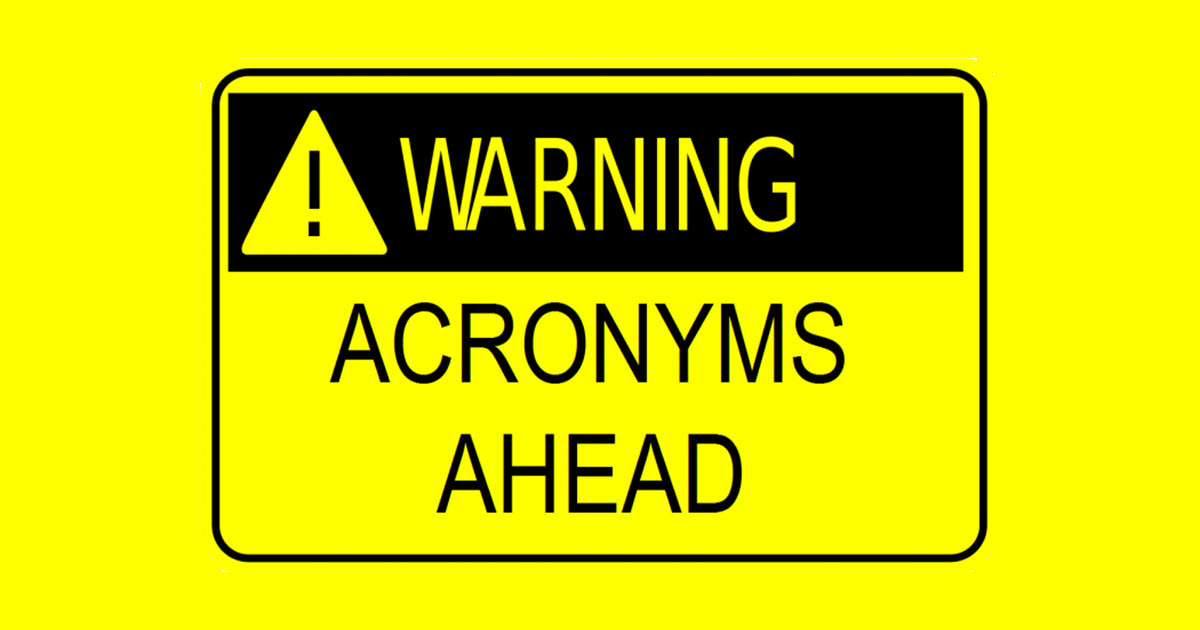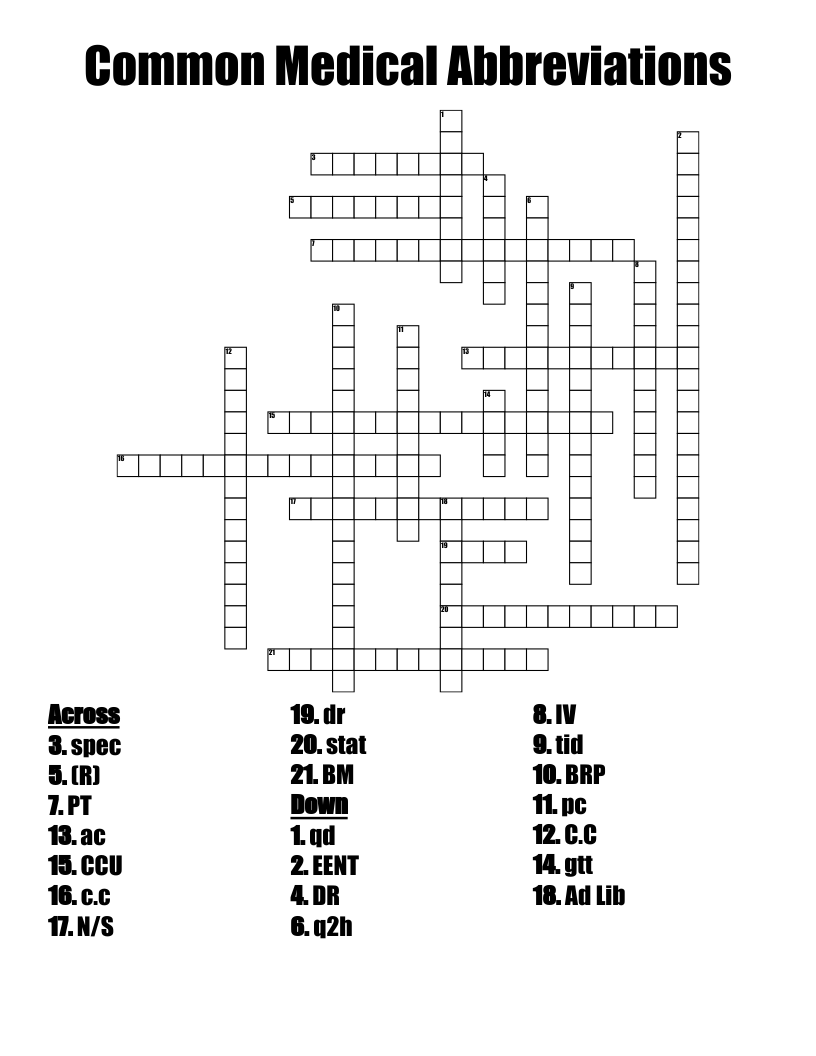Common crossword abbreviations and acronyms include “N” for north, “S” for south, “E” for east, “W” for west, “Rd” for road, “St” for street, “Ave” for avenue, “Dr” for doctor, “Prof” for professor, and “M” for thousand.
Decoding Crossword Clues: A Guide to Common Abbreviations and Acronyms
Crossword puzzles have been a popular pastime for people of all ages for decades. They provide a mental challenge and a sense of accomplishment when completed. One of the key elements of solving a crossword puzzle is understanding and deciphering the clues provided. Crossword clues can come in various forms, including abbreviations and acronyms.
These shorthand forms of language can be tricky to decipher, but with some knowledge and practice, they can become valuable tools in solving crossword puzzles. In this article, we will explore the common abbreviations and acronyms used in crossword clues, as well as provide tips for decoding them effectively.
Common Abbreviations Used in Crossword Clues
Abbreviations are shortened forms of words or phrases, often consisting of the initial letters of the full words. In crossword puzzles, abbreviations are commonly used to shorten long words or phrases to fit into the limited space of the puzzle grid. Some common abbreviations found in crossword clues include “ave.” for avenue, “apt.” for apartment, “dept.” for department, and “lbs.” for pounds.
These abbreviations can be confusing for those who are not familiar with them, but with practice, they can become easier to recognize and understand. It is important for crossword enthusiasts to familiarize themselves with these common abbreviations in order to improve their puzzle-solving skills.
Understanding Acronyms in Crossword Clues
Acronyms are formed by taking the initial letters of a phrase or name and creating a new word from them. In crossword puzzles, acronyms are often used to shorten long phrases or names, making them easier to fit into the puzzle grid.
Some common acronyms found in crossword clues include “NASA” for National Aeronautics and Space Administration, “FBI” for Federal Bureau of Investigation, and “NATO” for North Atlantic Treaty Organization.
Understanding acronyms is essential for solving crossword puzzles, as they can provide valuable clues to the answers. By familiarizing themselves with common acronyms, crossword enthusiasts can improve their ability to decode and solve puzzles more efficiently.
Tips for Decoding Crossword Clues
Decoding crossword clues, especially those containing abbreviations and acronyms, can be challenging for beginners. However, with some tips and strategies, it is possible to improve one’s ability to decipher these clues effectively.
One helpful tip is to look for context clues within the puzzle itself. Often, the surrounding clues and the overall theme of the puzzle can provide hints to the meaning of the abbreviations or acronyms. Additionally, it can be beneficial to use a crossword puzzle dictionary or online resources to look up unfamiliar abbreviations and acronyms. By expanding one’s knowledge of these shorthand forms of language, it becomes easier to decode crossword clues and solve puzzles with confidence.
Another useful strategy for decoding crossword clues is to consider the part of speech of the answer. For example, if the clue contains an abbreviation for a measurement unit, the answer is likely to be a noun.
Similarly, if the clue contains an acronym for an organization, the answer is likely to be a proper noun. By analyzing the grammatical structure of the clue, it becomes easier to narrow down the possible answers and make educated guesses. With practice and perseverance, crossword enthusiasts can develop the skills needed to decode even the most challenging clues and become more proficient puzzle solvers.
Abbreviations for Measurement Units
In crossword puzzles, abbreviations for measurement units are commonly used to shorten long words such as “inch,” “foot,” “pound,” and “ounce.” Some common abbreviations for measurement units include “in.” for inch, “ft.” for foot, “lb.” for pound, and “oz.” for ounce.
These abbreviations can be confusing for those who are not familiar with them, but with practice, they can become easier to recognize and understand. It is important for crossword enthusiasts to familiarize themselves with these common abbreviations in order to improve their puzzle-solving skills.
Acronyms for Organizations and Companies
Acronyms for organizations and companies are frequently used in crossword puzzles to shorten long names and phrases. Some common acronyms found in crossword clues include “NASA” for National Aeronautics and Space Administration, “FBI” for Federal Bureau of Investigation, and “NATO” for North Atlantic Treaty Organization.
Understanding acronyms is essential for solving crossword puzzles, as they can provide valuable clues to the answers. By familiarizing themselves with common acronyms, crossword enthusiasts can improve their ability to decode and solve puzzles more efficiently.
Abbreviations for Historical and Geographical References
Abbreviations for historical and geographical references are often used in crossword puzzles to shorten long names and phrases. Some common abbreviations for historical and geographical references include “USA” for United States of America, “UK” for United Kingdom, “WWII” for World War II, and “BC” for Before Christ.
These abbreviations can be confusing for those who are not familiar with them, but with practice, they can become easier to recognize and understand. It is important for crossword enthusiasts to familiarize themselves with these common abbreviations in order to improve their puzzle-solving skills.
Deciphering Crossword Clues in Different Fields (e.g. science, literature, sports)
Crossword puzzles often contain clues from a wide range of fields, including science, literature, and sports. Deciphering crossword clues in different fields can be challenging, especially when they contain abbreviations and acronyms specific to those fields.
For example, in science, abbreviations such as “DNA” for deoxyribonucleic acid and “RNA” for ribonucleic acid are commonly used in crossword puzzles. In literature, acronyms such as “NYT” for New York Times and “BBC” for British Broadcasting Corporation may appear in clues.
In sports, abbreviations such as “NBA” for National Basketball Association and “NFL” for National Football League are frequently used. By expanding their knowledge of abbreviations and acronyms in various fields, crossword enthusiasts can improve their ability to decode clues and solve puzzles across different subjects.
Common Abbreviations for Names and Titles
Abbreviations for names and titles are often used in crossword puzzles to shorten long names and phrases. Some common abbreviations for names and titles include “Mr.” for Mister, “Mrs.” for Missus, “Dr.” for Doctor, and “Sen.” for Senator. These abbreviations can be confusing for those who are not familiar with them, but with practice, they can become easier to recognize and understand. It is important for crossword enthusiasts to familiarize themselves with these common abbreviations in order to improve their puzzle-solving skills.
Mastering Crossword Clues with Abbreviations and Acronyms
In conclusion, mastering crossword clues with abbreviations and acronyms is a valuable skill for any crossword enthusiast. By familiarizing themselves with common abbreviations and acronyms, as well as practicing decoding strategies, puzzle solvers can improve their ability to decipher clues and solve puzzles more efficiently.
Whether it’s understanding measurement unit abbreviations, decoding acronyms for organizations and companies, or deciphering clues in different fields, crossword enthusiasts can enhance their puzzle-solving skills by expanding their knowledge of abbreviations and acronyms.
With dedication and practice, anyone can become a master at solving crossword puzzles with abbreviations and acronyms.



Leave a Reply